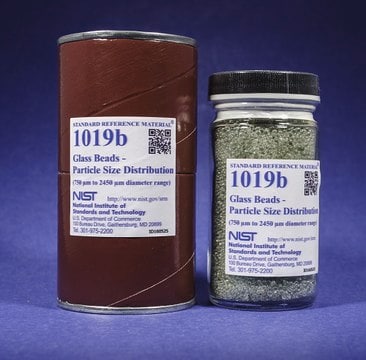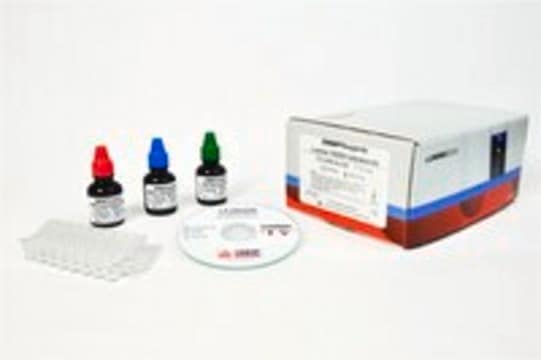MABS830
Anti-Acetyl CoA Carboxylase 1 Antibody, clone 7H4.2
clone 7H4.2, from mouse
Sinónimos:
ACC1, ACC-alpha
About This Item
Productos recomendados
origen biológico
mouse
Nivel de calidad
forma del anticuerpo
purified immunoglobulin
tipo de anticuerpo
primary antibodies
clon
7H4.2, monoclonal
reactividad de especies
mouse, human
envase
antibody small pack of 25 μg
técnicas
immunohistochemistry: suitable (paraffin)
western blot: suitable
isotipo
IgG2bκ
Nº de acceso NCBI
Nº de acceso UniProt
Condiciones de envío
ambient
modificación del objetivo postraduccional
unmodified
Información sobre el gen
human ... ACACA(31)
mouse ... Acaca(107476)
Categorías relacionadas
Descripción general
Especificidad
Inmunógeno
Aplicación
Western Blotting Analysis: 0.5 µg/mL from a representative lot detected Acetyl CoA Carboxylase 1 in 10 µg of NIH/3T3 cell lyate.
Calidad
Western Blotting Analysis: 0.5 µg/mL of this antibody detected Acetyl CoA Carboxylase 1 in 10 µg of A431 cell lysate.
Descripción de destino
Forma física
Otras notas
Not finding the right product?
Try our Herramienta de selección de productos.
Opcional
Código de clase de almacenamiento
12 - Non Combustible Liquids
Clase de riesgo para el agua (WGK)
WGK 1
Certificados de análisis (COA)
Busque Certificados de análisis (COA) introduciendo el número de lote del producto. Los números de lote se encuentran en la etiqueta del producto después de las palabras «Lot» o «Batch»
¿Ya tiene este producto?
Encuentre la documentación para los productos que ha comprado recientemente en la Biblioteca de documentos.
Nuestro equipo de científicos tiene experiencia en todas las áreas de investigación: Ciencias de la vida, Ciencia de los materiales, Síntesis química, Cromatografía, Analítica y muchas otras.
Póngase en contacto con el Servicio técnico








